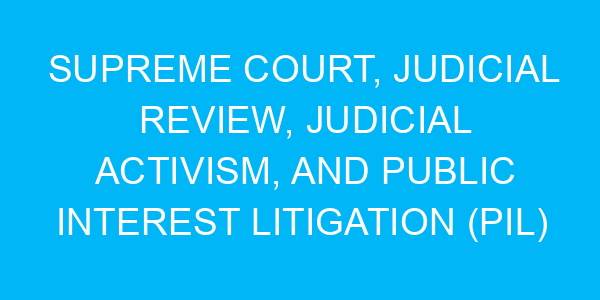71. The concept of “judicial activism” is often associated with:
a) Expanding the scope of judicial power to address societal issues
b) Restricting the power of the judiciary to interpret laws
c) Prioritizing the rights of the individual over the collective
d) Upholding strict adherence to the original intent of the Constitution
72. The power of “judicial review” was established by the landmark case:
a) Roe v. Wade
b) Brown v. Board of Education
c) Marbury v. Madison
d) Gideon v. Wainwright
73. The concept of “judicial activism” is often criticized for:
a) Overstepping the boundaries of the judiciary and interfering with the legislative and executive branches
b) Failing to protect individual rights and freedoms
c) Prioritizing the interests of the wealthy and powerful
d) Neglecting the role of judges in shaping public policy
74. The power of “judicial review” allows the court to:
a) Review the decisions of lower courts
b) Review the decisions of the President
c) Review the constitutionality of laws and executive actions
d) Review the decisions of state governments
75. The power of “judicial activism” is often associated with:
a) Judicial restraint
b) Judicial independence
c) Judicial supremacy
d) Judicial creativity




